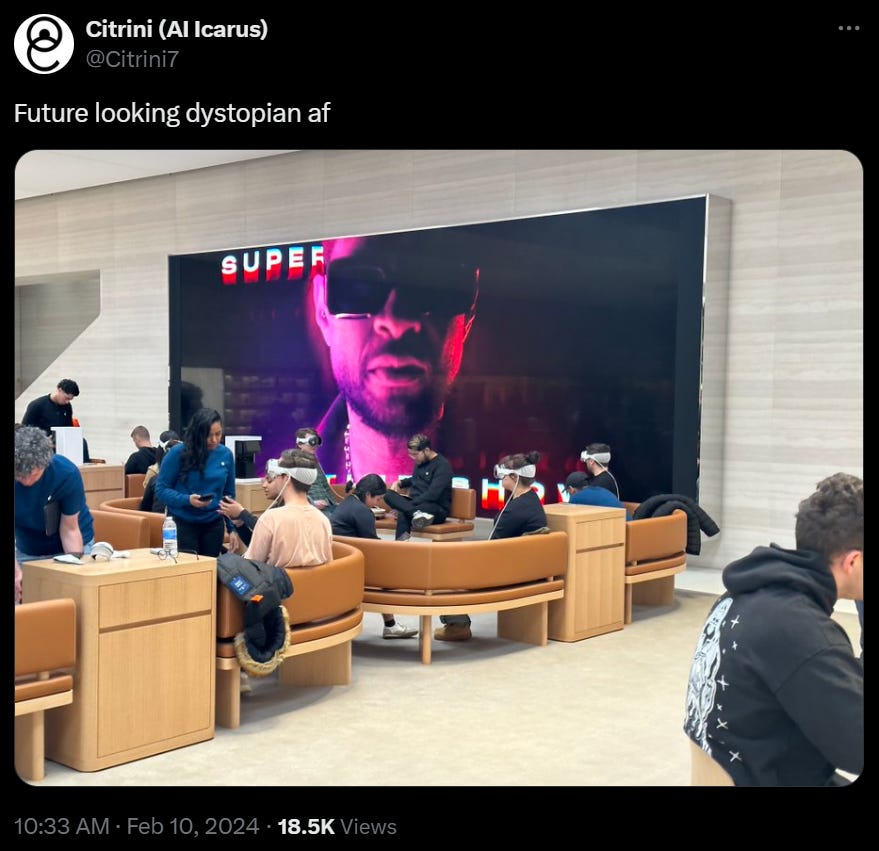Patch Notes #5
Mostly AI, bugfixes and performance improvements.
I mentioned the Taylor Swift government psyop last week, sort of as a joke. But then the Chiefs (and Taylor) came back to win the Super Bowl, and President Biden tweeted this:

I had to ask a friend what was going on here — despite being Pretty Online, I avoid most political news. It’s the Dark Brandon meme. And then it turns out that according to a recent Monmouth University poll (n=902), 18% of the American public believe in a Taylor Swift conspiracy to help Biden win the 2024 election. Unsurprisingly, the majority (73%) of people who believe in the conspiracy also believe the 2020 election outcome was fraudulent. But despite that “two-thirds (68%) of the American public approves of Swift encouraging her fans to vote in the upcoming election.”
I’m not sure how to square these two facts — this implies that there is some set of people who both believe that Taylor is part of a conspiracy to help Biden win, and also approve of her encouraging people to vote. Anyways, 2024 is shaping up to be great time to ignore the news.Speaking of the impending shitshow that is the 2024 election, here’s Byrne Hobart at the Diff on why AI-based disinformation will not be a big deal for it:
A persistent concern about AI is that it enables the creation of hyper-realistic fake audio and video, which will usher in a dark age in which no one can trust anything they see online, and that elections will ultimately be determined by whether Russia or China get the most GPUs—or something like that. It's unclear, because the implication of most disinformation-discourse is that it's a warning that other people will fall for it, in harmful ways. Nobody says "My biggest fear is that I, personally, will switch the candidate I support on the basis of a fake thirty-second clip posted on Twitter by Belorussian intelligence."
I think whether AI disinformation will be a “big deal” depends on how you define “big deal”. It’s reasonable that Hobart is right that from a purely electoral perspective, AI won’t be swinging voters one way or another. (And if you assume that swing voters don’t really exist, then it’s even more likely to not matter.)
But if you take “big deal” to mean “even more terrible news of people doing increasingly unhinged things based on disinformation as we spiral towards an even more polarized populace” then it’s hard to imagine how AI won’t make this worse. We had a guy firing an AR-15 in 2017 inside a pizza restaurant because he was investigating the QAnon conspiracy theory:Welch heard about the conspiracy theory last December and spent three days reading about it and watching videos, according to a statement that was part of his plea agreement. He then decided to go investigate the matter himself.
How many conspiracies with supporting videos and evidence about all sorts of things (voter fraud, stolen elections, migrants, take your pick) are we going to see this year? Even if AI isn’t literally swinging voters for 2024, I’m still much more bearish on the effects of AI for public discourse this year.
Plenty of other big news in AI this week that you probably have already heard including OpenAI’s text-to-video generator Sora (which is importantly not open to the public as they assess the risks), and Google’s Gemini 1.5 Pro announcement (also not publicly available yet) which can run up to 1 million tokens in production, or 8x GPT-4 Turbo’s 128K context length. If that means nothing to you, here’s an example of “identifying a scene in a 44-minute silent Buster Keaton movie when given a simple line drawing as reference material for a real-life object”:
Your AI Girlfriend Is a Data-Harvesting Horror Show:
You’ve heard stories about data problems before, but according to Mozilla, AI girlfriends violate your privacy in “disturbing new ways.” For example, CrushOn.AI collects details including information about sexual health, use of medication, and gender-affirming care. 90% of the apps may sell or share user data for targeted ads and other purposes, and more than half won’t let you delete the data they collect.
A follow up to Casey Neistat’s Apple Vision Pro video from last week:
In case you thought publicly traded companies were serious business, Lyft shares surged 67% after hours due to a typo in their press release stating margins were expected to expand by 500 basis points — subsequently corrected down to 50 bps (h/t Andrew).
Sotheby’s is slated to sell an Ether Rock, an early NFT of a 2d cartoon rock, for an estimated $500,000 to $700,000.
Brent Donnelly with an amazing chart showing the difference between the dotcom bubble and today:
I shared Patch Notes with a friend (hi Adam) the other day, and he told me there was a period when he was managing the patch notes for a product at Google and they were explicitly told they weren’t allowed to say “bug fixes” in the patch notes, because that implied there were bugs in the product, even though engineers were in fact fixing bugs. I would love to have sat in on the meeting where this decision was made.





My understanding about the NFT rocks is that because there are only 100 total in that supply, owning them is quite the flex. Even in the last month, the price on them has skyrocketed to ~200 ETH from roughly $150k or so around the beginning of the year. There's also a private Discord just for the rock owners, and that in itself could provide an edge, to reference one of your other newsletters.